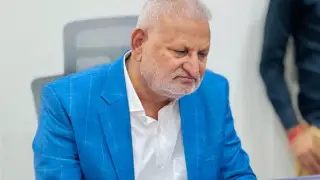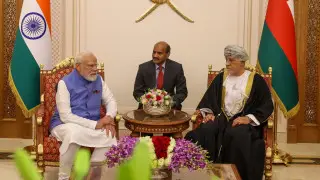
Bulldozer action (X/punny)
Supreme Court: The top court of India has issued a landmark ruling against the arbitrary use of bulldozers for property demolitions, affirming that such practices, often called "bulldozer justice," have no place in a society governed by law. The Court emphasized that demolitions should not be used as punitive tools by state authorities, and citizens must be protected from the unlawful destruction of their properties.
Chief Justice Dhananjaya Y Chandrachud, in a detailed order, stated, “Justice through bulldozers is unknown to any civilized system of jurisprudence.” He underscored the grave danger of demolitions being used as a selective form of reprisal, potentially based on extraneous reasons.
In its ruling, the Court laid down six crucial procedural steps that must be followed before any property can be demolished, even for government development projects. These include:
1. Verification of existing land records and maps.
2. Conducting proper surveys to identify encroachments.
3. Issuing written notices to those allegedly encroaching.
4. Considering objections and passing speaking orders.
5. Allowing sufficient time for voluntary removal.
6. Legally acquiring additional land if necessary.
The Court emphasized that officials who fail to adhere to these steps will face disciplinary action and potential criminal charges.
The ruling came in the wake of a case involving the September 2019 demolition of journalist Manoj Tibrewal Akash’s ancestral house in Uttar Pradesh’s Maharajganj district. Authorities claimed the demolition was required for expanding a National Highway, but investigations revealed that significant violations had occurred. The National Human Rights Commission (NHRC) found that the demolition had exceeded the alleged encroachment area, with no prior written notice issued to the property owners. In fact, the only announcement was made through public drum-beating.
Tibrewal accused authorities of demolishing his property as retaliation for his father’s call for an inquiry into a controversial road project. Although the Court did not directly address this claim, it stressed the importance of preventing demolitions from being used for selective punishment.
In a bold move, the Supreme Court ordered the Uttar Pradesh government to compensate Tibrewal with ₹25 lakh for the wrongful demolition and called for disciplinary and criminal action against the officials responsible for the unlawful act. The Court also directed the Chief Secretary of Uttar Pradesh to investigate similar demolitions and take action where legal procedures were not followed.
The ruling comes at a critical time, as incidents of arbitrary demolitions, especially in states ruled by the Bharatiya Janata Party (BJP), have raised concerns about the erosion of constitutional rights and due process.
The Supreme Court’s guidelines will be circulated to the chief secretaries of all states and Union Territories for immediate implementation. While the Court affirmed that the law does not condone illegal encroachments, it emphasized that all demolitions must follow due process to ensure justice and protect citizens’ fundamental rights.













Copyright © 2025 Top Indian News
